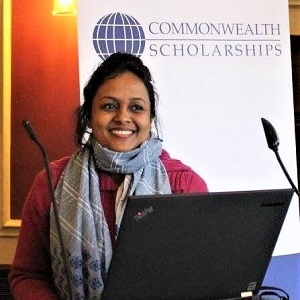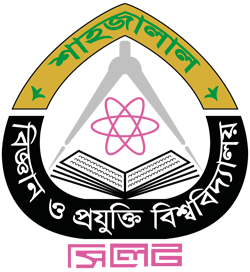Responsive Mobile Menu
Shahjalal University of Science and Technology
Faculty Profile

Halima Akhter
Associate Professor
Contact Information
- Office Address: Associate Professor Institute of Shahjalal University of Science and Technology, Sylhet-3114, Bangladesh
- Phone:
- Email: halima-anp@sust.edu
Education
- Commonwealth PhD Scholar (2019-) in Anthropology, Durham University,UK.
- Commonwealth Professional Fellowship (2013) at the University of Birmingham, UK
- M.S.S. in Anthropology (2004), Shahjalal University of Science and Technology, Sylhet, Bangladesh.
- B.S.S. in Anthropology (2003), Shahjalal University of Science and Technology, Sylhet, Bangladesh.
Research Interests
- Reproductive Health
- Maternal and Neonatal Health
- Mental Health and Wellbeing
- Qualitative Research
- Adaptation and Study Environment of University Students
Previous Research Project
- Personality Disorder: A Qualitative Study on Situation Analysis among the University Undergraduates, Sylhet. The project has been funded by the Vice Chancellor’s Research Grant of SUST (2009-10).
- Food Safety and Public Awareness: A Study on Consumers’ Risk Analysis. The Project has been funded by the UGC Bangladesh (2010-11).
- Students’ Suicide: A Qualitative Study on Situation Analysis among the University Students. The project has been funded by the UGC Bangladesh (2011)
- Postpartum Mother Care: A Qualitative Study on Care Seeking Behaviors of Mothers at Sylhet City Clinics. The project has been funded by the University Research Center (August 2012).
- Understanding the Consequences of Using Social Media among University Students at Sylhet. The study has been funded by the University Research Center (2019).
- Understanding the Necessity of Establishing a Student Support Service Center at SUST Campus. This study has been funded by the University Research Center, SUST (2019). (Principal Investigator)
Journal Publish
- 1. Akhter Halima, "Understanding the Trends of Maternal and Neonatal Mortality in Bangladesh in the Context of South Asia", Journal: Advances in Anthropology, ISSN Print: 2163-9353 ISSN, Vol. 9 Issue No.1, Impact Factor: 0.44.
- 2. Akhter Halima *, Mia C. and Akhter S. Understanding the Changes of the Wetland Ecosystem and Its Impact on the Biodiversity of Tanguar Haor in Sunamganj, Bangladesh, Asian Journal of Environment & Ecology, ISSN: 2456-690X , 7(4): 1-11.
- 3. Akhter Halima *, Jahan, M. and Rahman, M. Understanding the Maternal Health Situation of Bangladesh in Relation to Other South Asian Countries, International Journal of Research in Sociology and Anthropology (IJRSA), ISSN 2454-8677, Volume 4, Issue 4, PP 28-38,.
- 4. Understanding the Neonatal Health Situation of Bangladesh in Relation to other South Asian Countries, Akhter Halima *, and Rahman, H., Article no. ARJASS.45197, ISSN: 2456-4761
- 5. Akhter Halima *, Sumonkanti, D., Jahan, M. An Overview of the Maternal and Neonatal Health Situation in Bangladesh and the Scopes for Improvement, Society & Change Journal of Social Sciences, ISSN: 1997-1052 (print),Vol. XII, No.3.
- 6. Akhter, Halima*, Afroz, N. The Methods and Recent Invented Tools and Techniques Used in Archaeology for Delicately, Preserving the Past for the Future, Journal: Archaeological Discovery, 6, 338-354, Impact Factor: 0.89,
- 7. Jahan*, M. and Akhter Halima, Impact of Ecotourism on the Environment, Society and Culture of Ratargul Swamp Forest in Sylhet, Bangladesh, Kazi Moriom Jahan1* and Halima Akhter, Asian Journal of Environment & Ecology, ISSN: 2456-690X, 8(1): 1-8.
External Affiliations
- Anthropological Alumni Association, SUST
- Commonwealth Alumni Association Bangladesh.
- Commonwealth Alumni Association,UK
Awards & Recognition
- Commonwealth Professional Fellowship (2013) at the University of Birmingham,UK.
- Commonwealth PhD Scholarship (2019) at Durham University, UK.
- Global Citizenship Program Scholar (Team Leader), Durham University 2019.
- Global Citizenship Program Scholar, Durham University, 2020.
Teaching
- Medical Anthropology, Biological Anthropology, Research Methodology-2, Introduction to Archaeology, Culture, Space, and Globalization.
